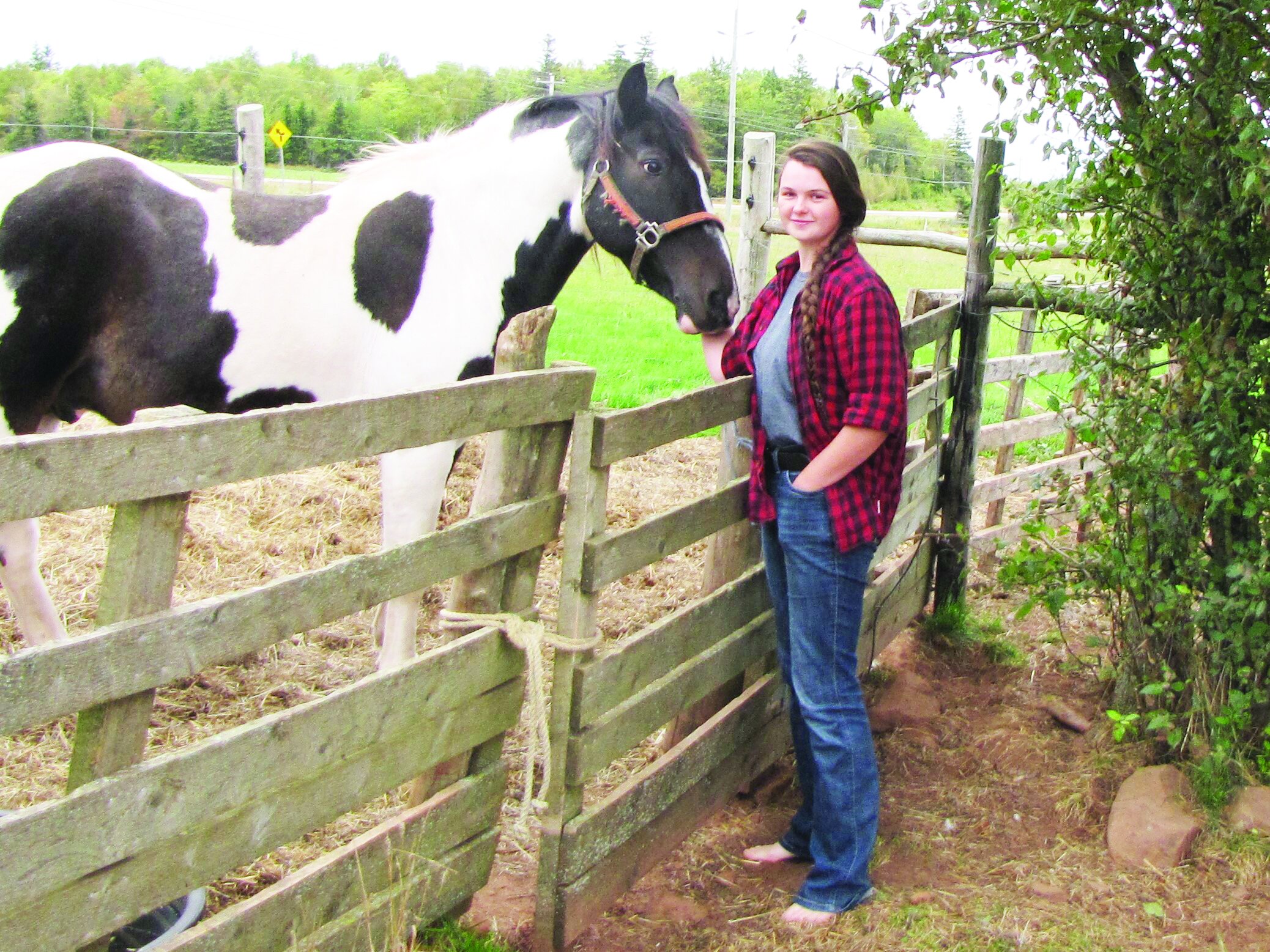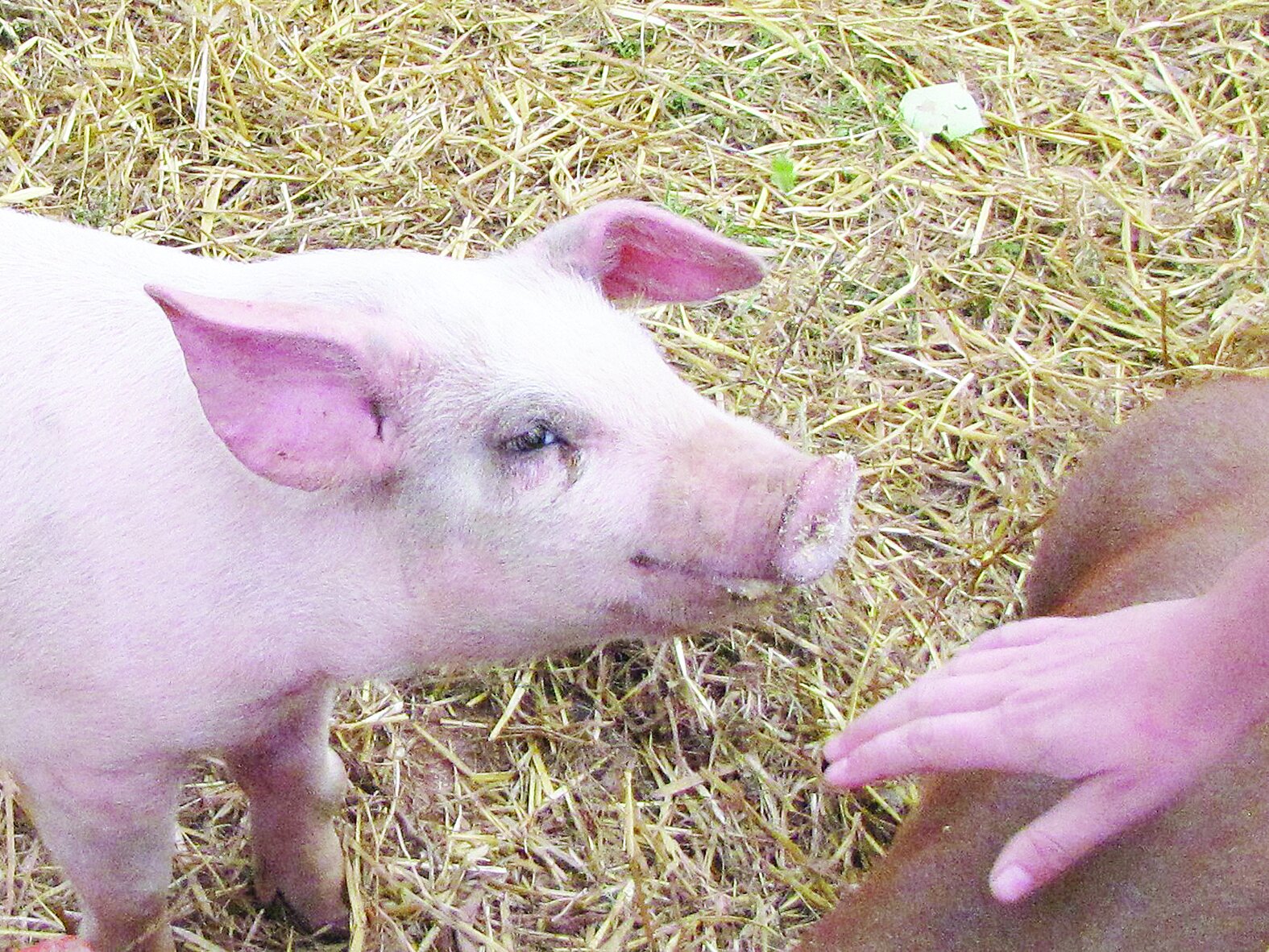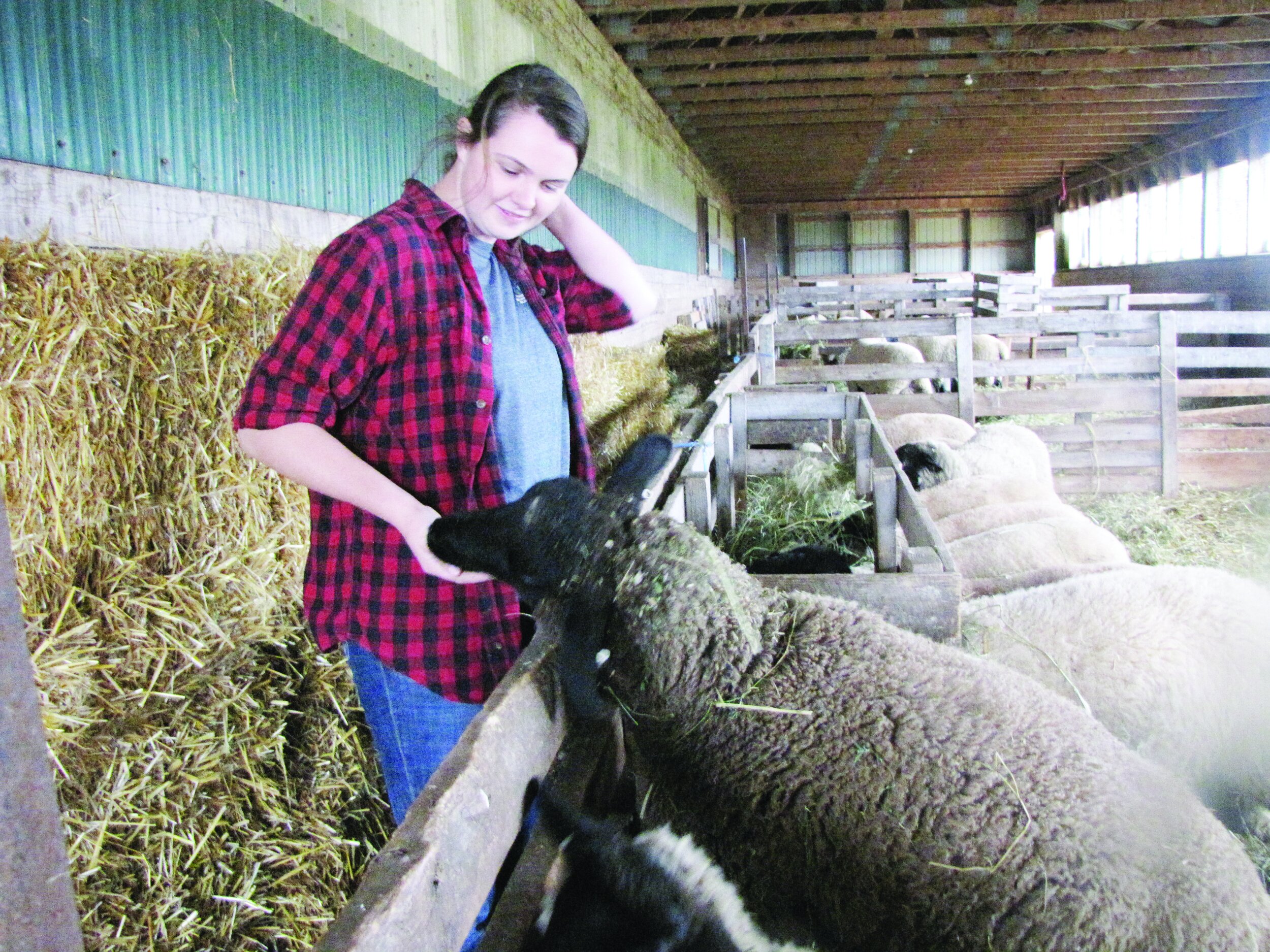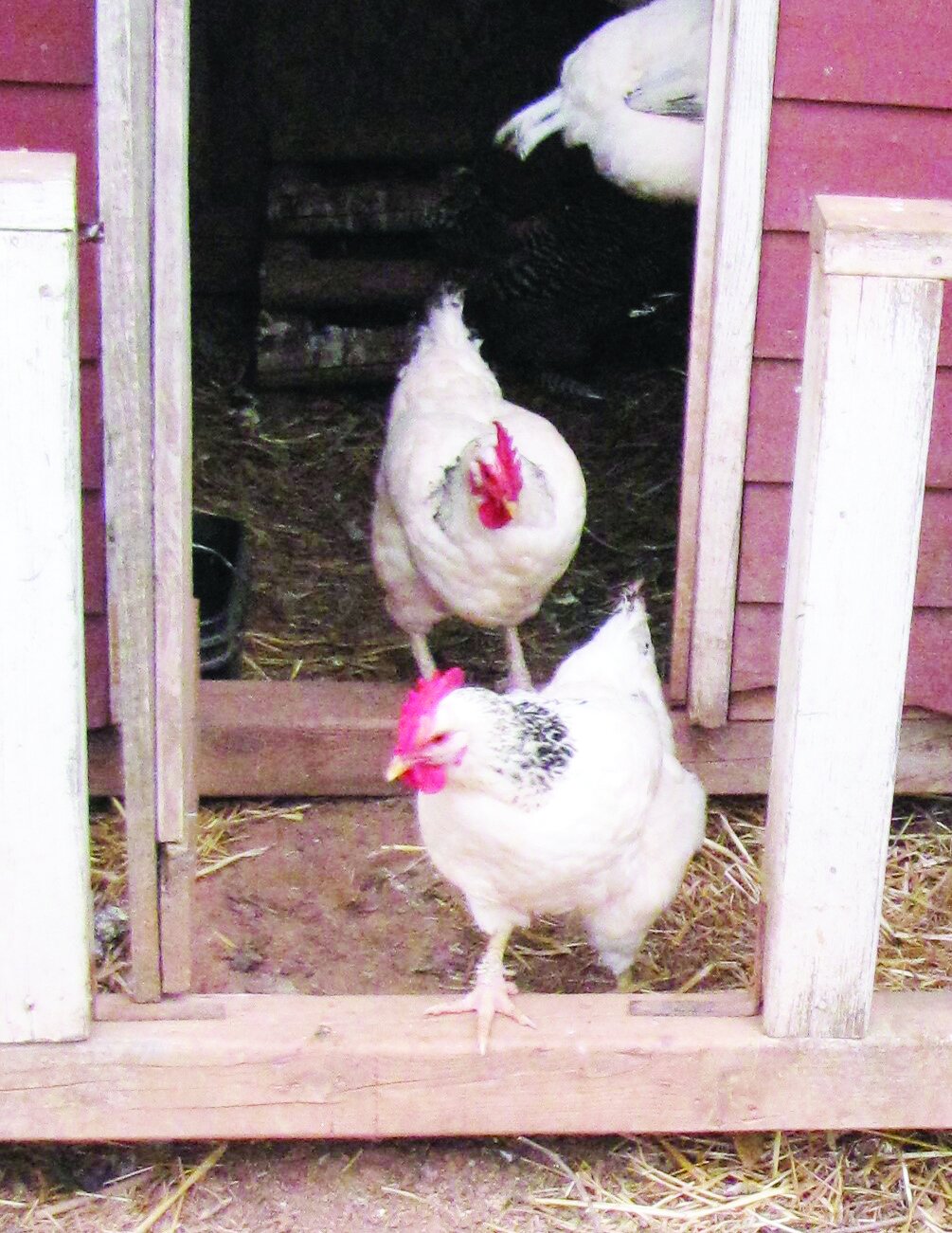Member of national advisory council at home on Island farm
/by Kathy Birt
It could be said that 21-year-old Ila Matheson of Albion Cross, P.E.I., is in her comfort zone as she makes her way around her family’s Springwater Farm, right down to sporting bare feet in the barnyard.
Springwater Farm focuses in particular on raising sheep and specializes in fresh, local lamb. The Mathesons typically sell their products at the Charlottetown Farmers’ Market, although they haven’t since the market moved outdoors due to the pandemic. In the summer, they operate an on-farm store called the Shepherd’s Nook where they sell lamb, P.E.I. wool blankets, yarn, and sheepskins. They also grow hay and sell square bales of hay and straw.
Having grown up on this farm, along with her younger sister Rae, Ila learned farming step by step from her parents Melaney and George. She said she was always accustomed to doing some farm chores and enjoys being around the menagerie of animals on the farm.
“We have pigs, a horse, a donkey, chickens and turkeys, and we always keep about 65 to 70 breeding ewes,” said Ila, who was recently named to the new Canadian Agricultural Youth Council (CAYC), which the government describes as “a consultative body to Agriculture and Agri-Food Canada.”
Federal Agriculture Minister Marie-Claude Bibeau announced on July 24 the names of the 25 young people who will form the CAYC. They were chosen from more than 800 applications.
Ila recently participated in the CAYC’s inaugural meeting, which was held virtually, and said one major issue identified during the meeting was consumers’ perception of agriculture.
“The wrong information can get out there on social media and agriculture needs to tackle that,” she said.
Ila credits being involved in 4-H while growing up for giving her the confidence to tackle her farm responsibilities.
Each year, as a 4-H project, she would pick a couple of lambs to show at the Dundas Plowing Match and Agriculture Fair in the late summer. The enthusiastic youth said she picked names for her lambs beginning with the letter L – such as Laddie, Lavender, and Lilac. She would keep the pair of lambs as pets for the summer, teaching them to walk beside her. “The walking is part of the showmanship points,” she said. “They would be all trimmed and cleaned up and I always got ribbons.”
As for her parents, with 25 years of farming behind them, George and Melaney are well-versed in farm routine.
“We market for the meat mostly, with the wool going to MacAusland’s Woollen Mills,” said Melaney. “They turn the wool into blankets, and we sell them.”
After the animals are butchered, the Mathesons tan the hides on the farm and sell them in their store.
“It’s a valued-added market,” said Melaney. “We make good use of the animal.”
According to Ila, there’s a growing demand for lamb on the Island.
“That market is getting bigger due to P.E.I. having more internationals around,” she said. “Lamb is a staple in many countries around the world. As we welcome more people to Atlantic Canada from other countries, the demand for lamb is growing.”
And COVID-19 certainly hasn’t hurt sales.
“Sourcing local produce during this pandemic seems to be a new fad for foodies,” said Ila. “They are buying in large amounts.”
Ila has upped her value-added game even more and is now shearing the sheep on the home farm.
“I started learning to shear last year,” she said, adding that she was taught by Amber Petersen, who does most of the shearing on the Island. “It’s hard work, but I caught onto it rather quick. I knew how to handle sheep.”
Ila said that while she was growing up, she was usually at the Charlottetown Farmers’ Market with her father, eventually being able to take care of the stall on her own.
It’s no surprise that she chose to study animal science.
“I’ve been at school the past three years with the Dalhousie Faculty of Agriculture in Truro,” she said. “There are all kinds of animals on campus. There are dairy cows, sheep, horses, mink, and even fish. We have lab work and reports to do, and we have had experience in dissection. There is lot of science in agriculture.”
Ila is very much at home in that environment, adding, “I live on a farm no matter where I am.”
With the onset of COVID-19 preventing her from being on campus in Nova Scotia, Ila is taking a minimum of online courses from home. “I feel I’m out of the loop doing online,” she said. “So, next year I’ll take a fifth year (in animal science).”
Her long-term plan is to come home and run Springwater Farm. “I’ll take over the farm, doing the bulk of the work, but my parents will still be involved,” she said.
“It’s time,” said Melaney as she talks about the years she and George put in on the farm and how they’re now looking to take a back seat.











